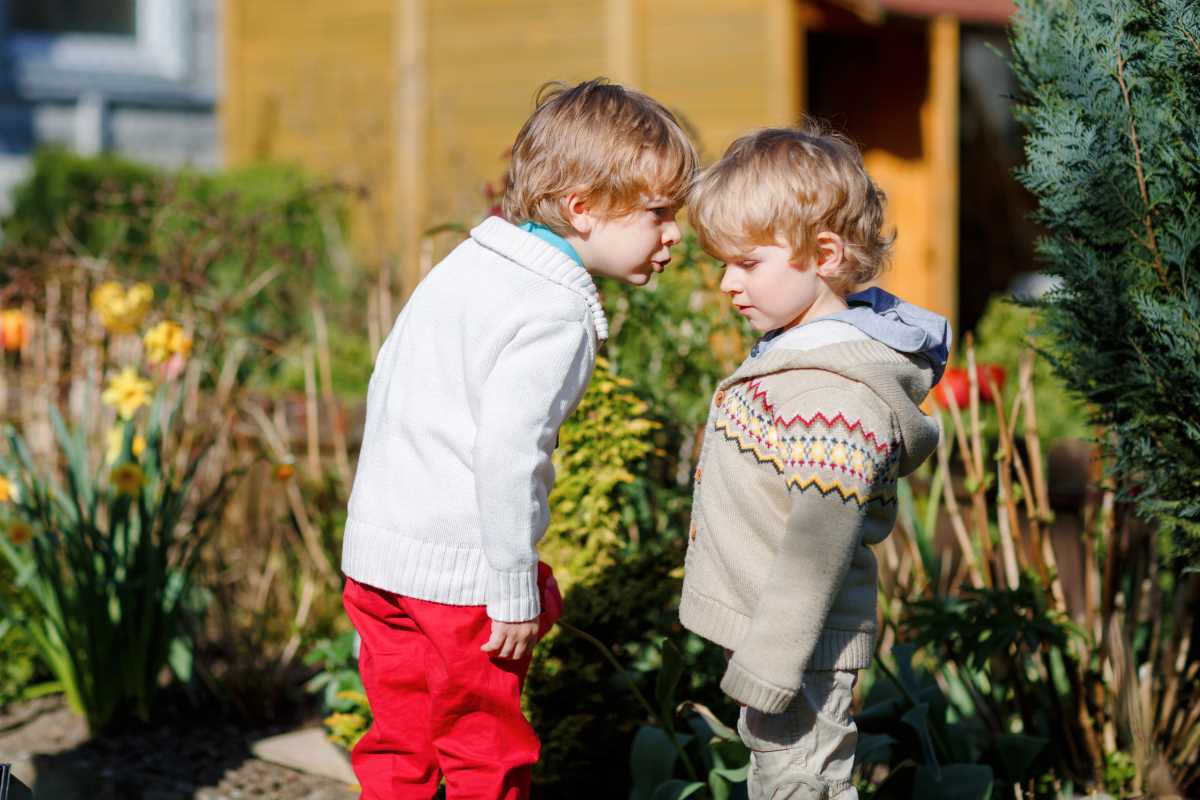Small disagreements between siblings often start over everyday things, such as who will have the final piece of pizza or which board game comes next. These early signs of conflict offer a chance to guide children toward more positive ways of interacting. When you notice the first hints of rivalry, simple actions and fun activities can help encourage fairness and understanding. By gently redirecting their focus, you support siblings in building respect for each other. Over time, this approach helps nurture cooperation and paves the way for a strong, lifelong bond that grows with every shared experience and friendly compromise.
Encourage Teamwork Through Shared Goals
Assign a joint task that helps brothers and sisters bond instead of competing. Whether they plan a mini indoor garden or assemble a birdhouse from scratch, focusing on a common goal encourages collaboration. Each child brings unique strengths, turning individual talents into a shared success.
These shared goals teach problem-solving and boost confidence. Celebrate milestones together—like watering the first seedling or completing the birdhouse—to reinforce a sense of pride and mutual support. Break larger tasks into smaller checkpoints so siblings can cheer each other on.
Set Aside One-on-One Time
Carve out individual attention for each child to prevent jealousy and reinforce their sense of value. Surprise outings—like a trip to the neighborhood skate park or a picnic in the backyard—create special memories that are independent of sibling comparisons. When each child feels heard and seen, they bring less tension back to group interactions.
Schedule diary dates without feeling formal. A quick ride around the block on scooters, a shared sketching session, or a chapter read-aloud over cocoa can work wonders. Rotate these moments regularly so everyone enjoys solo experiences without turning them into competition fodder.
Establish Clear Family Rules
- Outline expectations in simple language, covering respect, turn-taking, and personal space.
- Invite contributions so everyone feels ownership—kids can suggest rules and consequences.
- Post the list in a visible spot to remind siblings of the agreed-on guidelines.
Revisit these rules periodically. When kids help refine rules, they internalize them better. When tensions flare, referring back to a shared list feels fairer than arbitrary decisions. Consistency creates stability, and consistency reduces surprise frustrations that often trigger conflicts.
Create Fun Sibling Challenges
Friendly contests can redirect rivalry into playful competition. Whether they race to complete puzzles, build with Lego, or cook a snack together with a twist—like only using green ingredients—these challenges spark creativity and laughter. Keep each challenge lighthearted and focus on fun instead of a single “winner.”
After every challenge, encourage siblings to swap roles or ideas for the next round. That way, they gain appreciation for each other’s skills and discover new ways to work together. Rotating leadership lets everyone feel special and teaches humility when cheering on a sibling’s success.
Teach Conflict-Resolution Skills
- Pause and name the feeling: Ask each child to describe how they feel (angry, sad, left out).
- Use “I” statements: Model phrases like “I feel upset when the toy is taken without asking.”
- Brainstorm solutions together: Write down ideas on paper or a whiteboard.
- Agree on a plan: Let both sides choose one idea to try immediately.
- Review afterward: Check in after 10 minutes or later that day to see how it went.
These steps turn emotional outbursts into teaching moments. Practicing this routine frequently builds a toolkit that siblings carry into other friendships. When they learn to resolve disputes calmly, they develop emotional intelligence and empathy.
Strengthen Bonds with creative ways to strengthen sibling bonds at home
Set aside regular “bonding breaks” to keep the connection strong. Rotate who picks the activity—one week could feature a living-room dance-off, the next a backyard scavenger hunt. These intentional hangouts become mini traditions that siblings look forward to.
Switch up locations when possible. A quick nature walk or a stop at a corner café for smoothies can spark fresh conversation. When kids discover new settings together, they form shared adventures that overshadow petty disagreements.
Add occasional surprises—like wrapped clues leading to a hidden reward or a secret handshake only they share. These little touches remind siblings that their bond is unique and worth protecting.
Building Harmony That Lasts
Proactive planning and playful routines don’t just prevent conflicts—they lay the foundation for lifelong connection. When parents stay consistent and encourage positive habits, siblings begin to view each other as allies rather than rivals. Every small act of cooperation, from sharing laughter to solving disagreements, strengthens trust and emotional understanding. Over time, these shared moments create a sense of belonging that extends beyond childhood. By guiding kids toward empathy and respect early on, families build harmony that endures through every stage of life, turning everyday challenges into opportunities for unity and lasting love.
 (Image via
(Image via





